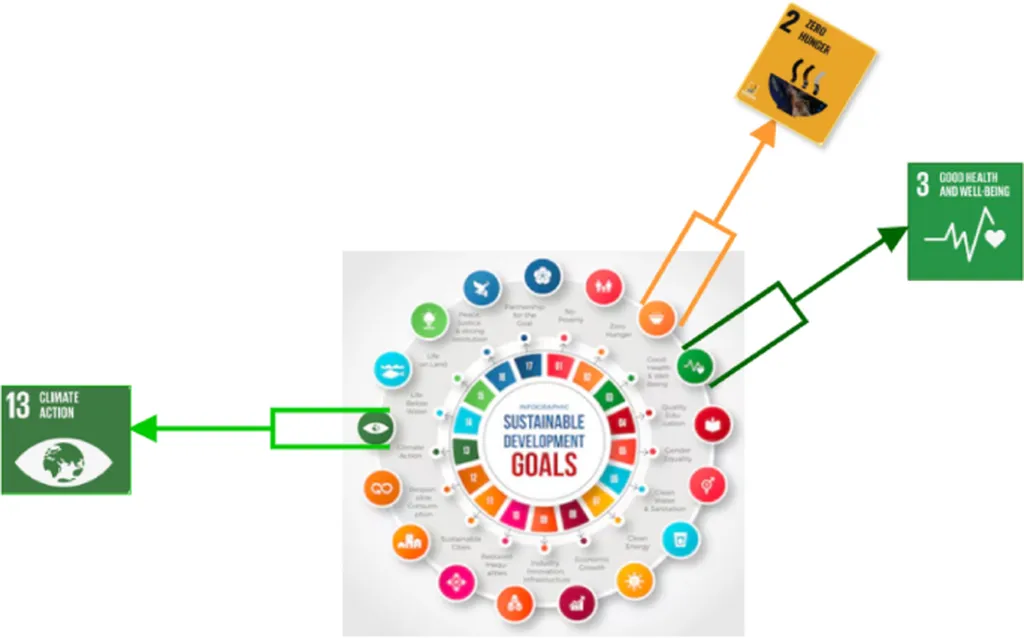In the heart of South Africa, a pressing challenge is unfolding that could reshape the way we think about food, energy, and climate change. A recent systematic review, led by Merishca Naicker from the School of Agriculture, Earth, and Environmental Sciences at the University of KwaZulu-Natal, Pietermaritzburg, has shed light on the intricate ways climate change is disrupting food supply chains, particularly for smallholder farmers. The study, published in *Frontiers in Sustainable Food Systems* (translated to “Frontiers in Sustainable Food Systems”), offers a stark reminder of the urgent need for adaptation and mitigation strategies to safeguard food security and economic stability.
The research, which synthesized findings from 143 peer-reviewed studies, paints a vivid picture of the vulnerabilities within the food supply chain. “Climate change is not just an environmental issue; it’s a profound economic and social challenge,” Naicker explains. The study highlights how shifts in temperature and rainfall patterns are causing crop yields to fluctuate, leading to shortages and price volatility. These disruptions ripple through the entire supply chain, affecting everything from production to consumption.
For the energy sector, the implications are significant. As the world grapples with the need to reduce greenhouse gas emissions, the agricultural sector is increasingly seen as a critical player. “Adaptation strategies, such as improved water management and altered farming practices, are essential,” Naicker notes. “But mitigation strategies, like enhancing energy efficiency and reforestation, are equally important. These efforts can help lower greenhouse gas emissions and build resilience in the face of climate change.”
The study underscores the need for coordinated efforts to promote Climate-Smart Agriculture (CSA), provide access to financial services, and strengthen food security programs. Policies that encourage agroecological approaches and sustainable land use are also crucial. “We need to integrate climate and agricultural policies to create a more resilient food system,” Naicker emphasizes.
The commercial impacts of these findings are far-reaching. For energy companies, investing in sustainable agricultural practices could open new avenues for collaboration and innovation. By supporting farmers in adopting climate-resilient techniques, energy firms can contribute to a more stable food supply chain while also reducing their own carbon footprint. This dual benefit could enhance corporate sustainability goals and open up new market opportunities.
Moreover, the study highlights the importance of market access and trade policies in ensuring food security. As climate change continues to disrupt traditional farming practices, the need for flexible and adaptive policies becomes ever more pressing. “We must ensure that smallholder farmers have access to the resources and information they need to adapt to changing conditions,” Naicker says.
The research also calls for a review of existing laws and policies to better address the challenges posed by climate change. This includes promoting agroecological approaches that work with ecosystems rather than against them. By fostering a more sustainable and resilient food system, we can mitigate the risks associated with climate change and ensure food security for future generations.
As the world continues to grapple with the complexities of climate change, this study serves as a timely reminder of the urgent need for action. For the energy sector, the findings offer a roadmap for collaboration and innovation, highlighting the critical role that sustainable agricultural practices can play in building a more resilient future. By working together, we can create a food system that is not only sustainable but also economically viable and socially equitable.
In the words of Merishca Naicker, “The time for action is now. We must come together to build a more resilient and sustainable food system, one that can withstand the challenges of climate change and ensure food security for all.”

